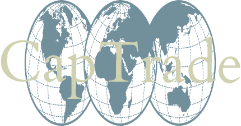Forty Years’ Bearings Trade War is History
The January 17, 2014 U.S. industry deadline for requesting continuance of the antidumping bearings antidumping orders on Japan and the UK passed with no member of the U.S. industry making the requisite filing (see DOC notice below). Accordingly, after over forty years of investigations[1], annual reviews, sunset reviews, as well as repeated litigation, and GATT/WTO challenges, one of the longest-standing antidumping duty orders is ending. The only remaining antidumping duty order for this product covers tapered roller bearings from China. At one time or another, antidumping duty investigations were filed against nearly all major types of bearings, including tapered, cylindrical, ball, and spherical plain, from the following countries: Austria, Germany, France, Italy, UK, Sweden, Spain, Turkey, Yugoslavia, Romania, Hungary, Japan, Singapore, Thailand, Korea, India, Mexico, Brazil, Canada, Taiwan, Hong Kong, and China. The cases originally were brought by The Torrington Company (ball, cylindrical, roller, and spherical) and the Timken Company (tapered). After acquiring Torrington in 2003, Timken, the last remaining U.S.-owned full-line bearing producer, kept the cases alive. Timken was the largest recipient of CDSOA funds under the so-called Byrd Amendment. According to CDSOA data, Timken and its affiliates received over $720 million over the years. Additional Byrd funds will trickle into Timken’s coffers over the next few years, as the remaining litigation is completed.
The anti-friction bearings antidumping cases will be remembered in U.S. trade law for a number of policy and legal precedents, including:
· The use of sampling for reporting U.S. and home market sales;
· The Department’s ability to change so-called model match methodologies in ongoing orders;
· The requirement for cost of production responses from unaffiliated suppliers of subject merchandise in certain instances;
· WTO litigation filed by European and Japanese governments that successfully challenged the practice of zeroing in annual reviews;
· The litigation roller coaster ride associated with the Japan/UK appeal of the ITC second sunset review. After multiple remands, the ITC, under protest, revoked the AD orders against Japan and the UK under the sunset provision, only to have the CIT overturned by the CAFC. At the heart of this litigation was whether third country imports – mainly from China – were priced so low and entering in such volume so as to preclude any future injury by imports from Japan and the UK.
There may never be another round of trade cases like bearings. Uruguay Round amendments make it more difficult for minor U.S. producers like Timken to achieve the standing threshold; while negligibility provisions eliminate the ability to bring cases against minor producers. For the first time in four decades, all bearings (except tapered from China) will soon be entering the U.S. as Type 01 entries.
[1] The original case on tapered roller bearings from Japan was filed on October 31, 1973.
